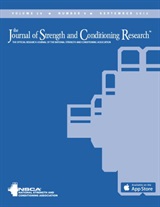 The Cochrane Library has withdrawn a criticized 2014 meta-analysis about a technique to help young people avoid alcohol abuse, because of “major errors.”
The Cochrane Library has withdrawn a criticized 2014 meta-analysis about a technique to help young people avoid alcohol abuse, because of “major errors.”
The review found that motivational interviewing, a form of counseling to help people change behaviors, showed some effects but had “no substantive, meaningful benefits” in preventing alcohol abuse among people 25 and younger. However, other researchers in the field, including some whose studies were included in the analysis, soon raised concerns about the review’s methods and data calculation, and the authors withdrew it.
Here’s the brief notice for “Motivational interviewing for alcohol misuse in young adults:”
Continue reading Cochrane withdraws criticized alcohol misuse report for “major errors”
 A
A 

 We have discovered several errata for a New York City urologist, including in one paper that previously
We have discovered several errata for a New York City urologist, including in one paper that previously 
